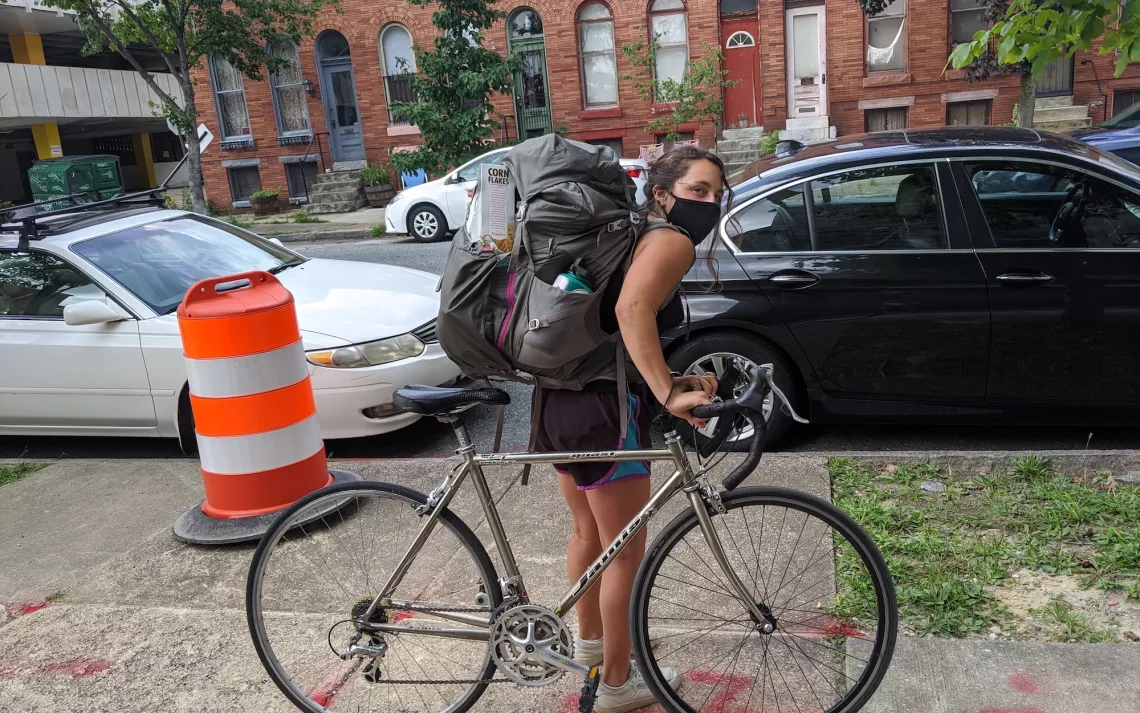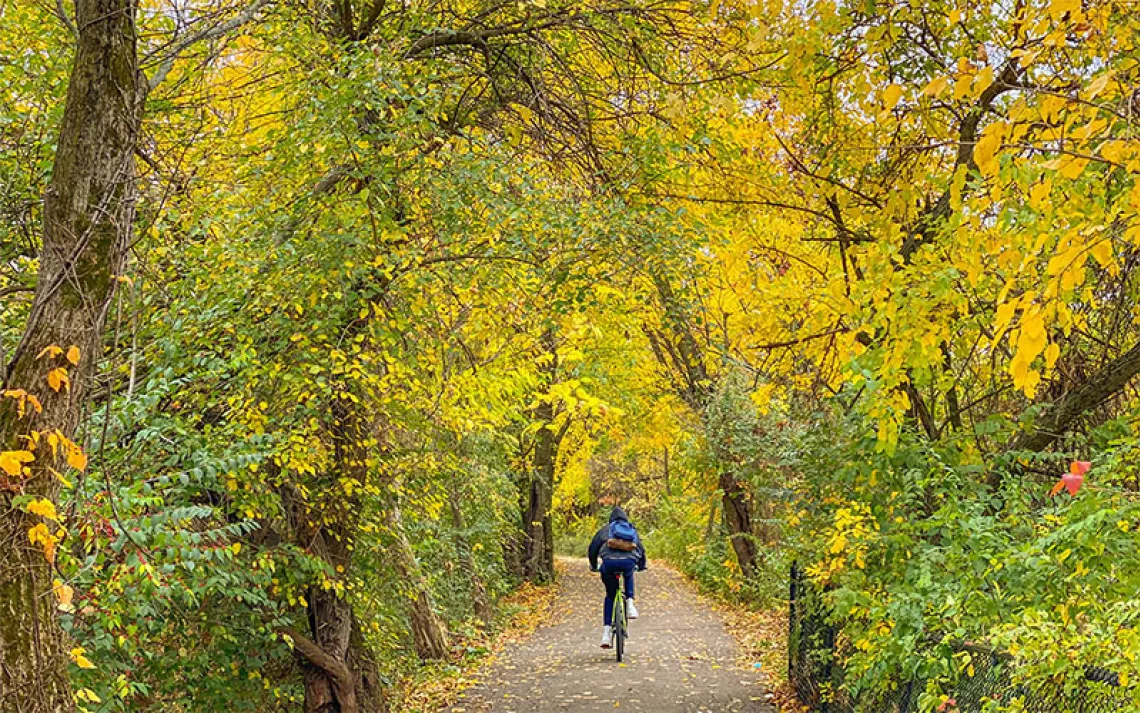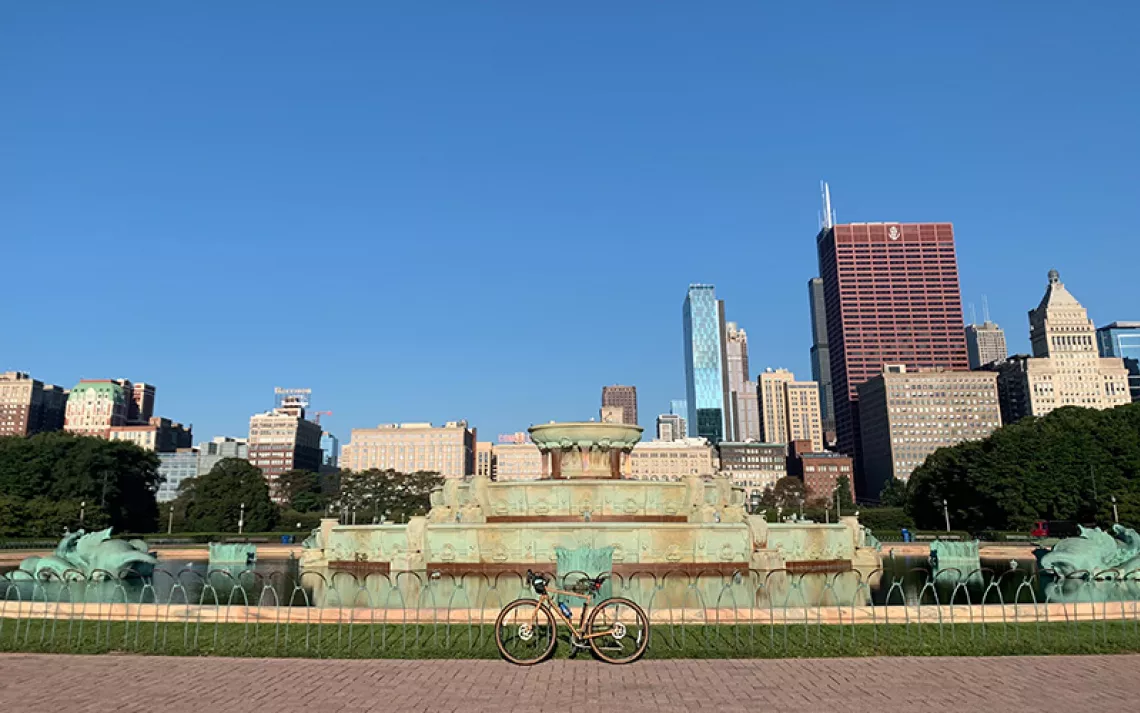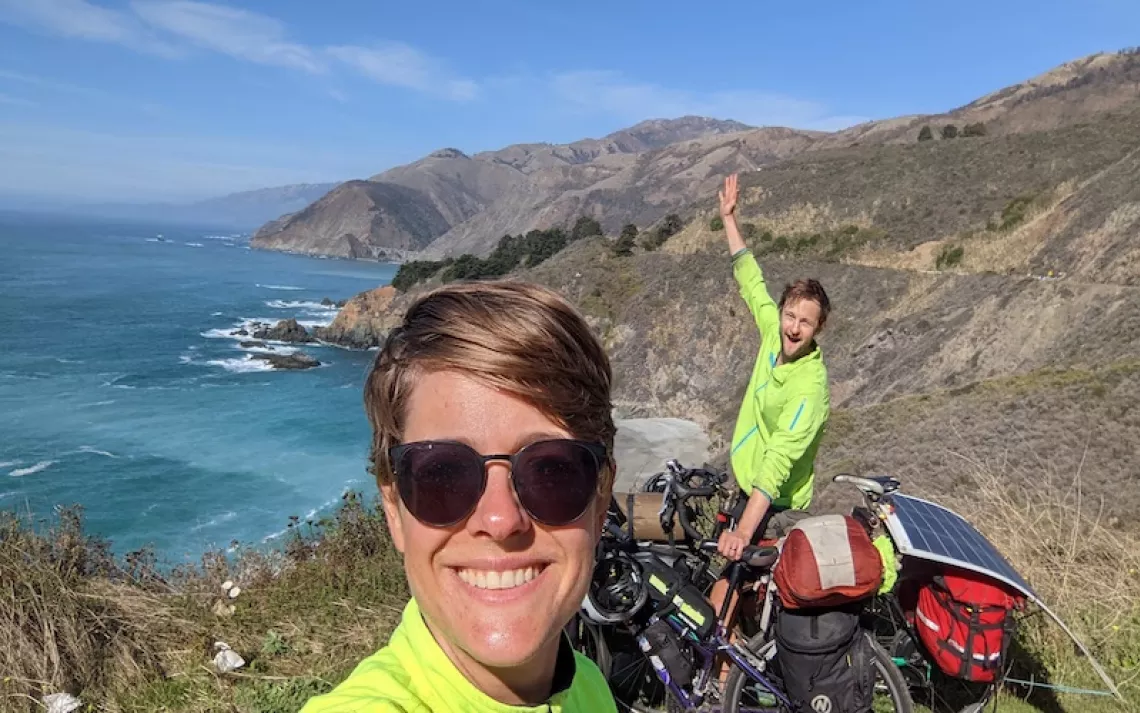In Baltimore, COVID Relief Arrives on Two Wheels
Bikemore volunteers use green transit to help those in need

Photos courtesy of Clarissa Chen
One rainy day in May 2020, Clarissa Chen stood next to tables loaded with bags of food. She wondered if anyone would show up to help her give them away. They did. It wasn’t long before more than 20 volunteers arrived, much to her surprise and delight. That was just the beginning of the Bikemore project to deliver food by bike to families in need during COVID-19.
Bikemore is a nonprofit in Baltimore, Maryland, that works to increase biking and green transit infrastructure. Chen, the organization’s community engagement coordinator, said another local nonprofit, Civic Works, got in touch about supporting food distribution by bike to those most in need. In the following months, Bikemore did similar work with United Workers and the Franciscan Center. “We weren't sure how it would pan out, but we set up a couple of volunteer trainings over Zoom, and the program kind of took off from there,” said Chen.
“Like with many organizations, when COVID happened we knew we had to shift priorities,” Chen explained. “A lot of the advocacy work we were doing was still happening, but we had to put a pause on our in-person programs. This [food delivery] was an exception—we knew it was important for us to leverage our community and demonstrate how bikes are an essential tool in community building and creating resilience.”
From May 2020 to July 2021, more than 65 volunteers delivered 870 grocery boxes and bags and 1,600 meals to people in need. Chen credits the high number of volunteers to the fact that they had more flexible schedules because they were working from home.


“People were eager to find a way to support their neighbors and be out on their bikes too. It was a good reason to leave the house,” said Chen. “I think many were feeling both a sense of restlessness and helplessness, and this was a way for them to meet their own needs of being in community in a safe way while helping others get the resources they needed.”
Barae Hirsch was one of those volunteers. She says she was drawn to the project because she believes in the importance of mutual aid. “Mutual aid is an immediately feasible structure for building community and making sure community members are able to meet basic needs, especially in times of crisis,” Hirsch said. “One way to do this is by ensuring that everyone, including vulnerable community members, have access to fresh food regardless of their ability to pay for it.”
Hirsch described the bikes as one of the best ways to connect those most impacted by the COVID-19 pandemic with food donations. Bike volunteers were able to meet the needs of those who had lost jobs, lacked access to a car or public transportation, had compromised immune systems or vulnerable family members, or were facing any number of other issues that kept them from reaching donation centers by bringing food directly to them.
“Bike deliveries are a very logical way to utilize sustainable transportation to move food across the city,” said Hirsch, who noted that the city needs better public transit as well. “Bikes should supplement free and equitable public transportation—which is severely lacking in Baltimore. The two must go hand in hand.”
The most challenging delivery days were the rainy ones and the ones when she longed for more cargo capacity on her bike. That’s in addition to common challenges that bicyclists face in a city: rough roads and angry drivers. Still, Hirsch said she enjoyed getting to know the city even better during her bike rides.
“It is very exciting to me that my regular activity of transporting myself around the city can be transformed into a constructive means of community building and organizing,” she said.
The volunteers are done bicycling for now but remain ready to help if the need arises again, said Chen. “I felt a lot of gratitude and hope, seeing people on bikes distributing thousands of produce boxes and meals over the course of the past year.”
 The Magazine of The Sierra Club
The Magazine of The Sierra Club



